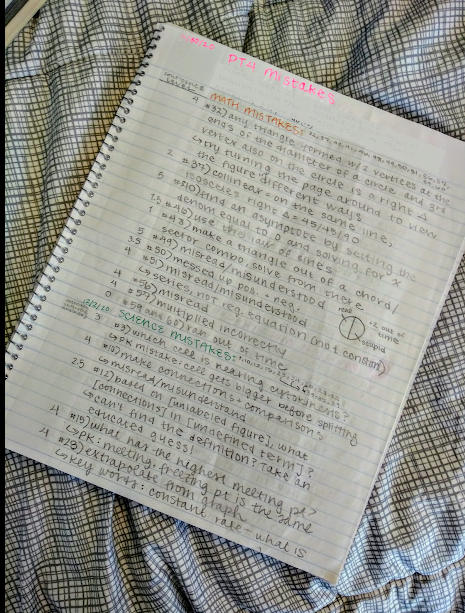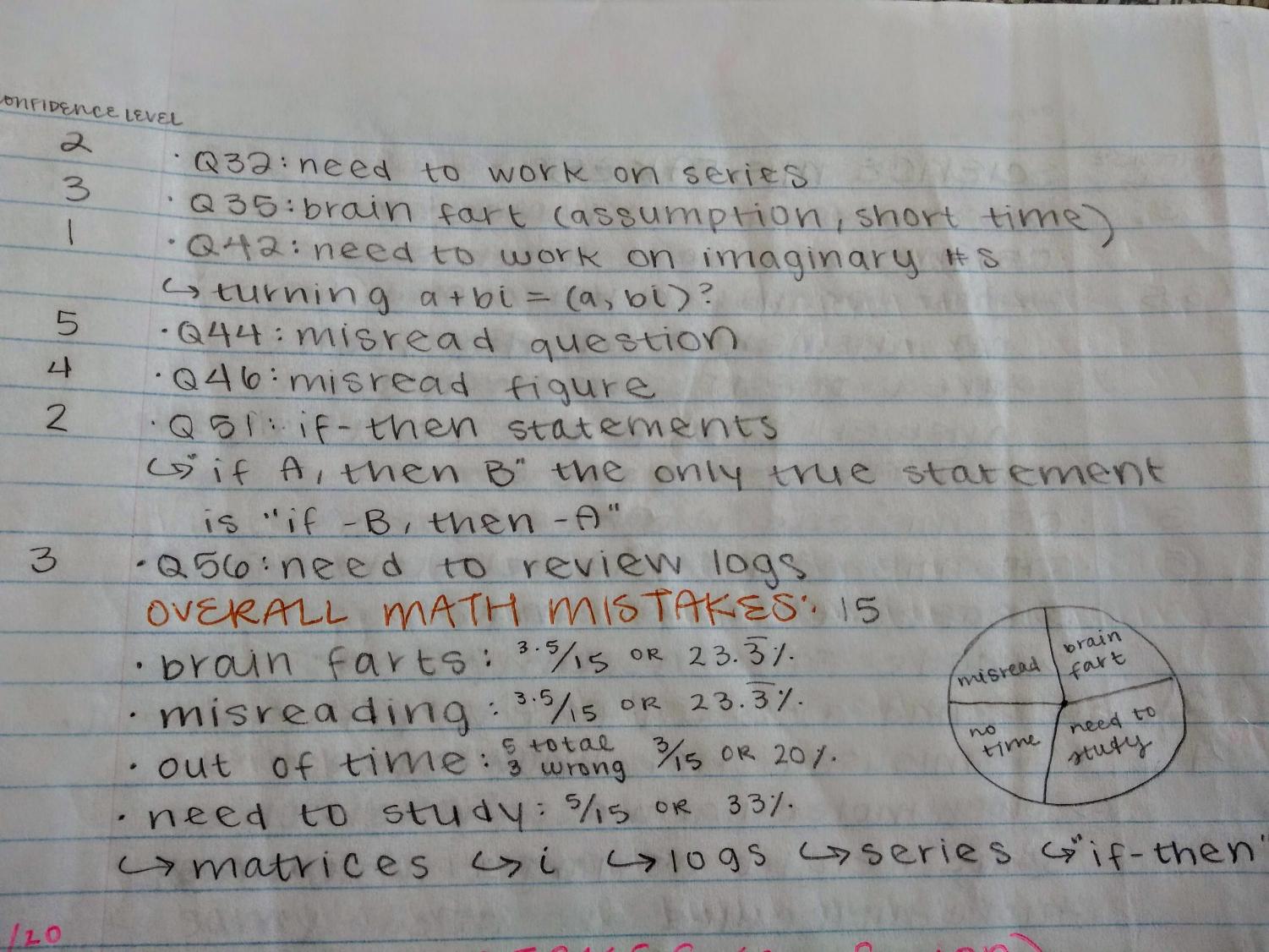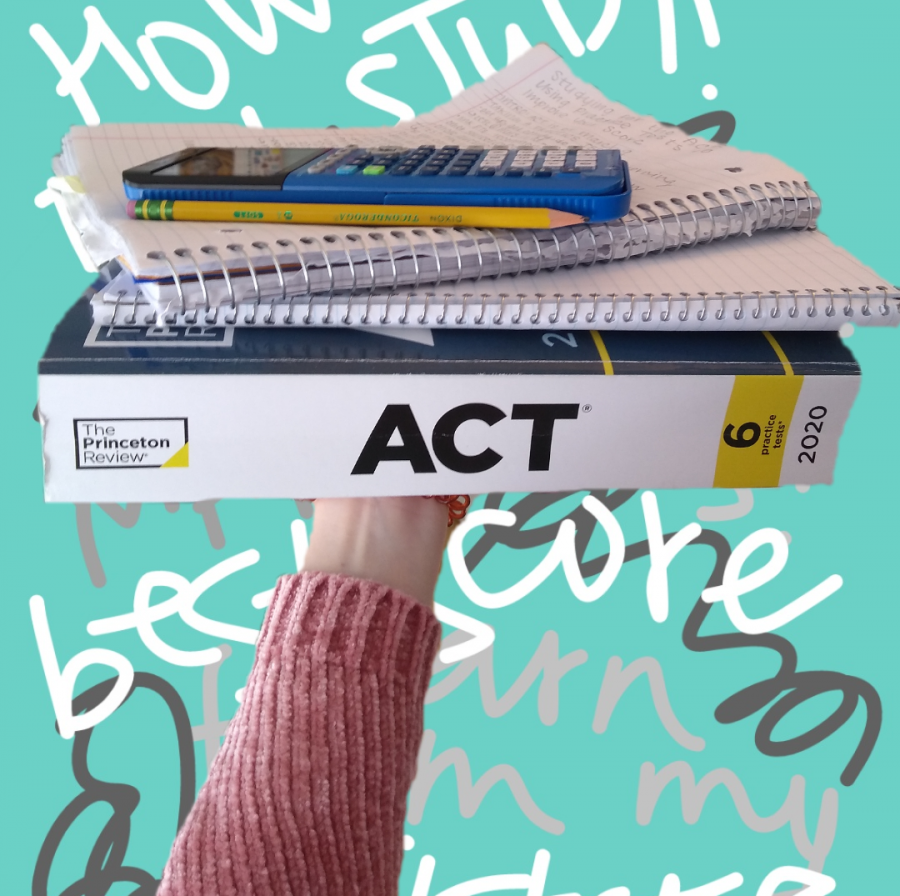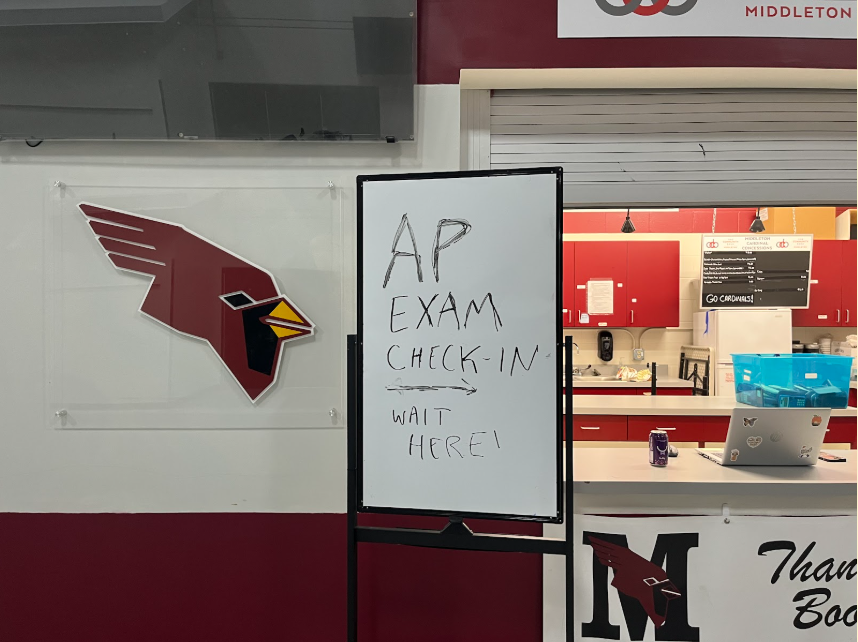Studying for the ACT: Using Practice Tests to Improve Your Score
Have your teachers ever suggested that you learn from your mistakes? They might have been on the right track: Analyzing your mistakes after taking a practice test is a great way to study for the ACT.
February 22, 2021
March 9 is only two weeks away, and with that comes Middleton High School’s ACT. Juniors may be left wondering how to study more efficiently and effectively as the clock ticks down. Although there are many methods of studying, taking and analyzing a practice test helps to narrow down what you need to work on, ensuring that you do not waste time on things you already know. Here’s how you do it.
Taking a Practice Test
Find a test that works for you. If you would like to take a practice test on your computer, click here. If you are able to print your test, there are several PDFs here. Many ACT study books include practice tests as well. I recommend the Princeton Review ACT Prep book, which includes six practice tests and explanations of all of the answers, which helps you learn from your mistakes.
When taking a practice test, treat it as if you are taking the real ACT. Do not pause your timer to take a break. Don’t look up the answers. Make sure to go to bed early and start your test in the morning, just as it will be administered on the real test date.
Test-Taking Basics
Prior to taking the test, review some strategies that will help you succeed.
- If you do not know the answer to a question, don’t just guess. Instead, use the process of elimination to give yourself a greater likelihood of getting the answer correct.
- Circle questions that you are unsure of so you can return to them later if you have extra time.
- Pick a “letter of the day” that you will use on all questions that you do not know the answer or don’t have time to answer. There is no penalty for getting a wrong answer, so you may as well fill in a random answer for a 25 percent chance of accuracy rather than putting no answer in at all.
- Do not linger! If you do not know how to answer a question, move on to the next one. If you have time at the end, you can work on it, but if you spend too much time in one place, you will end up lowering your score. Even if you get the right answer on that problem, in that time you could have answered five more questions correctly.
- Save time by filling out your scantron at the end of each page or passage instead of after each question. Filling out your scantron after each question interrupts your focus.
Analyze Your Mistakes
Once you have taken and graded your test, go back and look over your mistakes. Make sure to record everything in a notebook or on a document so you can review it later (try using this free document from The Cardinal Chronicle.) What is the point in taking a practice test if you are unable to learn from it? Follow these steps to analyze your mistakes:
1. Try the problem again.
See if you are able to answer the problem correctly this time. Sometimes mistakes are made due to pressure or time, and trying the question again after taking the test should eliminate those factors. If you still get the answer wrong, you can easily figure out what you need to study.
2. Determine what you did wrong.

If you are using a book or website that explains the answers, read what the experts recommend. If not, try to work backwards now that you know the answer. If you are still unsure, ask your advisor or a teacher during ASR.
3. Learn from your mistakes.
Ask yourself, “What can I do to prevent this mistake in the future?” Maybe you need to study a certain math formula, pay closer attention to the passage you are reading, or take another practice test to work on your speed. Whatever it is, write it down.
I also like to write down my confidence level for each problem. If I felt very confident that I was answering correctly, I write down a five. If I was just guessing, I write down a one. This helps to show you which weaknesses you are aware of and which weaknesses are hidden, which is arguably more dangerous on the ACT.
4. Figure out what type of error you made.
Did you make this mistake because you…
- Ran out of time?
- Cracked under pressure?
- Need to study a certain topic?
- Misread the problem?
5. Identify patterns in your mistakes.
Compile your errors at the end in order to determine what you need to study.

Find the total number of mistakes you made per section, then find what percentage of mistakes went to each type of error. For example, if you made ten mistakes and five of them were because you misread the problem, four of them were because you did not know how to do the problem (need to study), and one of them was because you ran out of time, you can narrow down what you need to work on. You can see that time is not your biggest enemy, but misreading problems caused you to make a lot of mistakes.
6. Know what to study.
From there, you can create a study plan to improve your score. Study any topics that caused you to make mistakes on the practice test, and make sure to work on other common mistakes of yours, like running out of time or misreading the text.
7. Additional support
To prepare more, review the questions you answered correctly but were confused about, following the same process outlined above. An easy way to do this is to go back through your test booklet, checking all of the problems that you circled. If you circled a problem but answered it correctly, try to understand why you were confused about it while taking the test.
You can also check out more online resources:
- Prepscholar has lots of free ACT prep resources, including study guides for every section of the test.
- CrackACT offers hundreds of ACT section tests online with answers.
- Middleton High School’s ACT Test Prep page shows you how to access more resources through Xello. It also links to videos from Mr. Niesen to help you with each section of the test.
By analyzing specific mistakes on your practice test, you are able to narrow down what you need to study, saving time and effort in the process. Work on what you need to improve without wasting time on the things you already know. Now you will be ready to earn your best possible score on the ACT in two weeks. Good luck!














